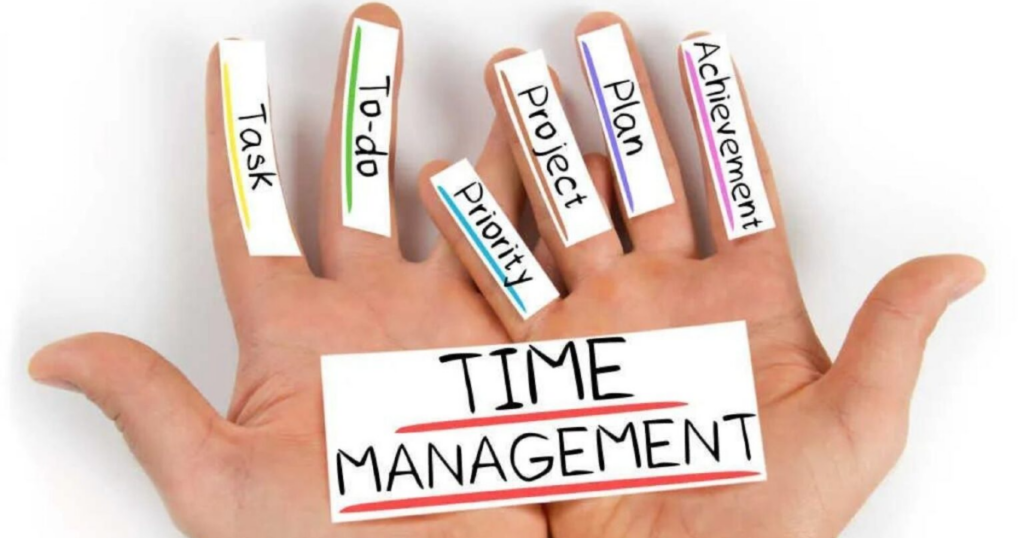
Managing time is the key to success. Many people know that, but not many succeed at implementing it. However, time management skills are now more crucial than ever. Due to the Covid-19 pandemic, hybrid working culture has had employees feeling overwhelmed by ineffective organisation skills, including time management.
As the name suggests, time management is a skill to greatly organise and utilise your time, so that you’re aware of the tasks at hand and upcoming work schedule. More importantly, having time management skills help you to free up your time for personal well-being.
So, why does time management matter? Having a well-organised schedule helps you to carefully plan your tasks and execute them in a timely manner. Completing tasks in accordance with the due date helps build trust, reduce stress levels, and boost productivity, which explains why time management skills are highly valuable to both employees and organisations.
With a well-arranged workload that's neatly organised, you’ll be able to see the whole picture of what tasks need to be completed, as well as when. This means that you should constantly update and check your schedule to ensure that no tasks overlap each other.
Setting both long- and short-term goals will boost your motivation to complete any and all tasks on time, as it guides you to see clearly what you'll need to do and prioritise, in order to achieve your set goals.
Having good communication skills is one of the major keys to effective time management, especially when it comes to delegating tasks. When we’re able to do this effectively, it allows us to make plans with our colleagues to ensure that all tasks are assigned fairly and in accordance to each person's capabilities, thereby allowing for goals to be met faster.

Knowing which tasks to prioritise will allow us to know which task needs to be accomplished first. There are multiple ways in deciding which are to be prioritised. The simplest way is to determine based on the due date of each task. The longer it’s due, the least it should be prioritised. However, remember to take into consideration the amount of effort needed to complete the task. Some generally take longer to finish, which explains why they have a longer due date.
Being good at delegating tasks will help in completing the tasks quicker, which leads to saving time. This skill is most needed when you’re in the managerial position. However, it’s just as important if you’re on the receiving end. Learning to say "no" is also crucial as it helps set boundaries to manage your time, in order to achieve your own goals.
Effectively managing your time will result in more productivity and efficiency in your career. Having a well-planned schedule will help you in completing the tasks promptly. It’s no secret that when one is given ample time to do their work, it'll result in better quality. Hence, with excellent time management skills, you'll always complete your tasks ahead of time.
Being good at time managing means you have lesser chances to procrastinate. Often enough, we'll convince ourselves to do anything other than the main tasks as a stress-coping mechanism. Hence, if we’ve learned effective ways of managing our time and working according to the schedules we’ve created, it'll reduce our urge to procrastinate over things. Creating a day-to-day to-do list will also help in getting the job done.
Too busy for yourself? That’s just an excuse for bad time management! When you’ve learned to delegate tasks efficiently, you'll be able to create some time for yourself to do what you really enjoy doing. It’s bad for our mental health if we’re constantly working without a break. Your pent-up frustration will eventually lead to burnout, which will be harder to recover from.
Most of the time, if we’re bad with time management, we’ll end up taking too much work on our plates. The feeling of being overwhelmed will eventually increase your stress and anxiety. Having too much of those will ultimately harm both your mental and physical health. Naturally, when our health is affected, so will our productivity. Hence, it’s best if we’re able to manage our time properly to reduce unnecessary stress.

Making a daily schedule is crucial for efficient time management. With a well-organised to-do list, you’re able to prevent yourself from procrastinating over tasks that are always at the back of your head.
Generally, knowing how to multitask is a crucial skill. However, most of the time, when we’re multitasking, it tends to make us lose focus on the important task at hand due to all the other distractions we’re getting. And we know it sounds hard to believe, but most people who attempt to multitask lose productivity and time when they switch from one task to another.
Allocating time to do similar tasks is one of the ways that will help you to save time. When you allocate a certain period to do certain types of tasks, you'll save yourself the mental energy of switching between tasks requiring different cognitive skills.
The Pomodoro technique is very effective, especially for people with ADHD. Pomodoro techniques generally structure your tasks into a short burst of focus time, in which you’re able to take a break after that burst.
For example, when working on a task, set a timer for 30 minutes and start working. Once the buzzer rings, you’re entitled to a 5 – 10 minutes break. These interval breaks between work are known as Pomodoro, which are very effective for efficient time management.
You should always prioritise important tasks as you plan your to-do list when you’re managing your time. Begin by identifying the due date and how much time is needed for each individual task. You should also take into consideration how important the tasks are.
There’s a difference between urgent and important tasks. Some tasks are generally more important than others even though they’re urgent – i.e., tasks given by the CEO and Head of Department. If so, you should tactfully push back certain less important tasks, especially if your peers or colleagues give them.

Little did you know, most of our time will be spent on unnecessary distractions such as social media, chit-chatting with colleagues, and more. And usually, the 2 minutes we said we needed to check social media will turn into 20 minutes without us even knowing. To avoid that, why not take a few minutes to learn about the things that may distract you so that you can avoid them and be more productive at work?
As Henry D. Thoreau once said, “It is not enough to be busy… The question is: what are we busy about?” With that being said, you should always be aware of your to-do list and what you're spending most of your time on. We’re sure you’re aware by now how important effective time management skills can be in your everyday lives. So, start practicing these tips and tricks mentioned above and make it a habit so that you can utilise your time in doing important things!